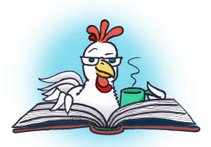The Shy Little Girl, by Phyllis Krasilovsky, tells the story of—surprise!--a little
girl named Anne who suffers from paralyzing shyness, which she eventually
overcomes by making friends with Claudia, a new girl in her class. That’s it;
that’s the tweet book.
It’s a simple story, but it spoke to me deeply when I first
encountered it at age four or five (The copyright date given is 1970). I was a
shy little girl myself [a fact which tends to shock people who’ve known me
only in my older, more gregarious incarnation], and the possibility that 1) a
shy person could meet one Very Special Friend, and 2) a shy person could stop
being shy – gave this book a magical feeling to me that it still retains today.
Much of the magic comes from the illustrations, by the late,
great, incomparable Trina Schart Hyman*. The 60s color scheme of mustard
yellows and browns and an occasional, striking pop of pink. The expressive faces on each individual child
in the school scenes, so that each spread tells a whole story in itself, almost
like Norman Rockwell. The striking technique, in a number of those group
scenes, of rendering only Anne – and then only Anne and Claudia-- in color,
while the other characters are black-and-white line drawings, so that the two
significant characters are highlighted, like Tony and Maria each haloed in
light in the “Dance at the Gym” scene in “West Side Story”.
I don’t make that comparison lightly: this book is,
essentially, a love story. That the love is a friendship between two kids of
roughly six or seven, rather than a romance between teenagers or adults, is of
less consequence than the importance of the friendship to Anne’s emotional
development: as much as any romantic heroine, Anne is changed by love.
Claudia thinks Anne’s freckles, which she’s been
self-conscious about, are “like gold dust.” She admires Annes’s height, so Anne
stops slouching and stands up straight. As she spends time with Claudia, “Anne
discovered she liked to talk, and that it was fun to make someone laugh.” She
begins to speak up in class and to join in games at recess. Because Claudia
thinks Anne is worthwhile, and Anne loves Claudia and values her opinion, she
learns to think of herself as worthwhile too, and transforms from a lonely,
sad, shy child to a socially confident girl who knows her place in the world.
That this all has the feel of a fairy tale is doubly fitting:
Trina Schart Hyman is perhaps best-known for her depictions of fairy tales—she
won the Caldecott Medal in 1985 for her illustrations for Saint
George and the Dragon, and one of her three Caldecott honors was for a
retelling of Little
Red Riding Hood. Even more, though, “Lonely girl saved by love” is the plot
of many a fairy tale.
Is it true? Does it really work like that? I certainly thought it would, as a child, and spent many years believing a friendship like Anne and Claudia’s would cure my shyness and sadness. The Shy Little Girl gave a shape to something I’m sure I’d already had an inchoate yearning for. It was, I think, my template for a loving relationship – so much so that when, a few decades later, I wrote a queer young adult urban fantasy story set in a city on the border of Elfland, the scene where young heroine and her love interest meet, in a junkyard strewn with useless discarded appliances, unconsciously echoes the illustration spread where Anne and Claudia meet at recess.
Of course, one thing I’ve learned as an adult is that fiction is not a reliable roadmap for living, and that having a friend (or a girlfriend, or a boyfriend) all by itself doesn’t cure shyness, or not liking yourself.. But it is true that seeing yourself through the loving eyes of someone you in turn love can help you discover your own worth. And when I’ve been lucky enough to have that happen, I believe I was able to recognize and value what I’d found partly because I’d had this story in the deep bedrock of my mind for over forty years.
Stories might not be literal truth. But sometimes, they
capture true magic.
*in 1973, a few years after this book’s publication TSN
would become the inaugural
art director at Cricket magazine, to which I was an inaugural subscriber,
and would subsequently become the first artist whose distinctive style I could
identify – her detailed, expressive, spidery illustrations in that magazine
jumped right out at me, and I found them at first scary and even repellent, but
then, as sometimes happened, they grew on me and she became my favorite
illustrator, and has remained so. In a used bookstore [when I used to go to
used bookstore] I would snap up anything with Trina Schart Hyman illustrations
or even a cover by her – and she did many covers, as a working illustrator her
whole life.










